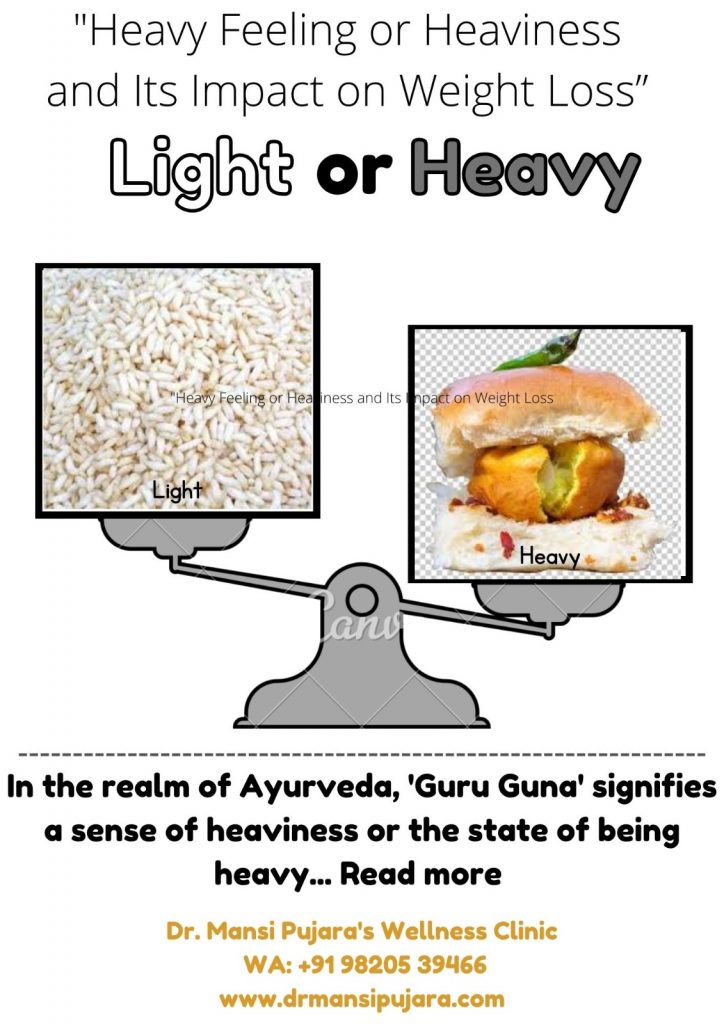
In the realm of Ayurveda, ‘Guru Guna’ signifies a sense of heaviness or the state of being heavy. This characteristic is one among the 20 ‘gunas’ or attributes observed in any substance or food.
Generally, heaviness alludes to something that possesses substantial weight and exerts a stronger gravitational pull. This sensation is also applicable to the realm of food. Often, it is noticed that certain foods are burdensome, difficult to digest, and after consuming them in larger quantities, especially during occasions like parties or functions, one tends to feel overly heavy post-meal.
These foods, which induce a sense of heaviness in the body, are categorized as ‘heavy’ in nature. Owing to their weightiness, they tend to suppress the digestive fire, slowing down metabolism, and subsequently leading to weight gain.
Furthermore, the primary function of foods with a heavy quality is to provide nourishment and augment the bulk of the body. Consequently, any food that imparts a heavy feeling post-consumption contributes to an increase in body weight. Conversely, foods possessing the opposite quality, known as ‘Lagu’ or lightness, are conducive to weight loss.
To facilitate weight loss, it is crucial to avoid both the quality and quantity associated with heaviness.
Examples of Quality:
Rice, when consumed in its cooked form, tends to be heavy in nature. However, when consumed in the form of puffed rice, it is exceedingly light. Puffed rice is characterized by its lightness, making it a suitable choice for weight loss.
Whole Moong is comparatively lighter when compared to larger pulses like rajma and chole, which are known for inducing a feeling of heaviness after consumption and require a longer time for digestion.
Examples of Quantity:
Another critical factor in achieving weight loss is feeling light after a meal. There is often confusion regarding portion sizes and how much one should eat. Ayurveda provides a straightforward guideline, suggesting that one should consume an amount that does not result in a feeling of heaviness after the meal. Therefore, after eating, if one experiences sensations of drowsiness, laziness, and an aversion to movement, it may indicate that the food choice was heavy, or the portion size was excessive.
Hence, for effective weight loss, one should aim to feel satisfied but not heavy after a meal. With the practice of mindful eating, individuals can gradually discern the difference between lightness, fullness, and heaviness.
Initially, if this seems challenging, one can adhere to the Ayurvedic principle of ‘Mitahar,’ which encourages leaving one-third of the stomach empty while eating. 🙂

